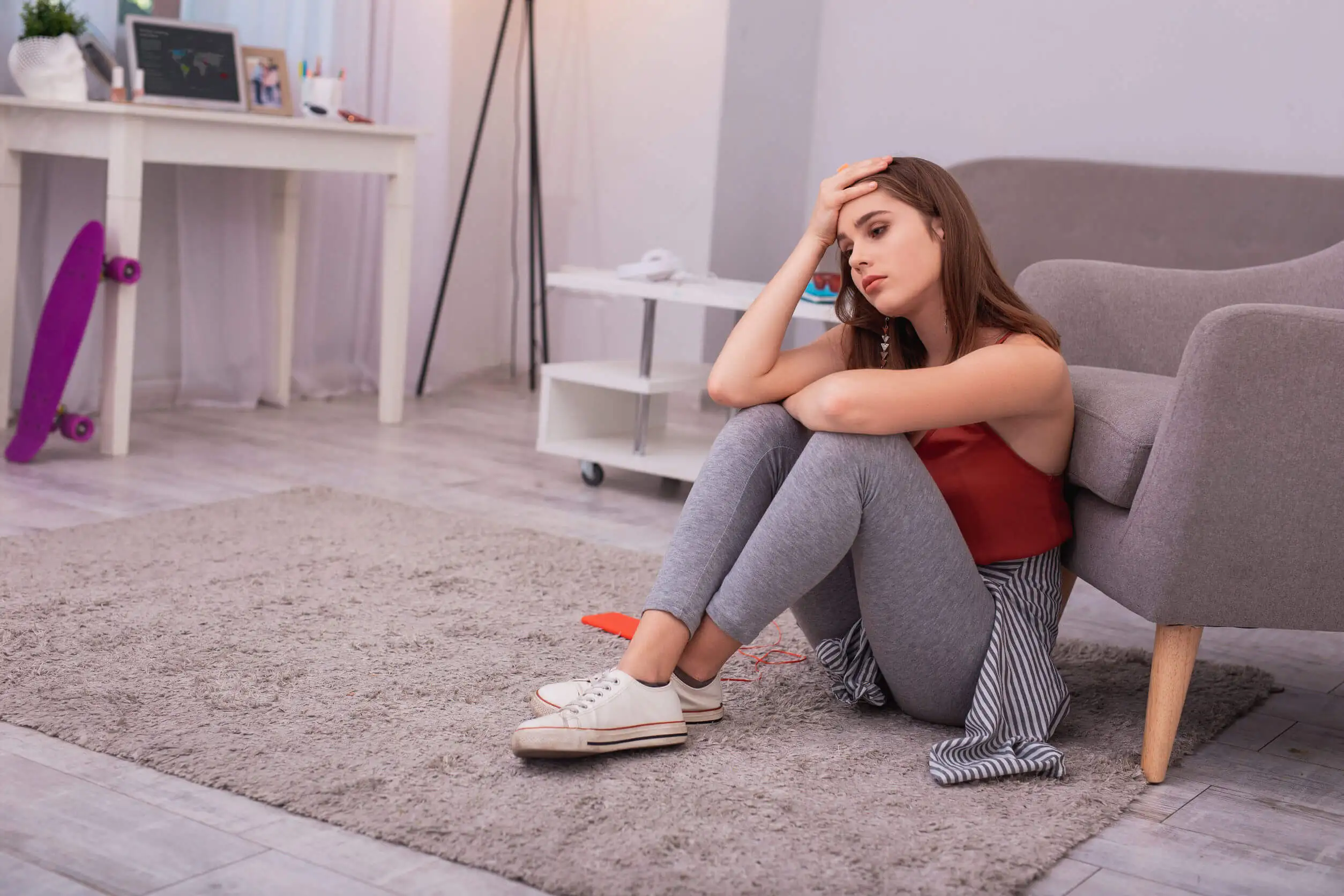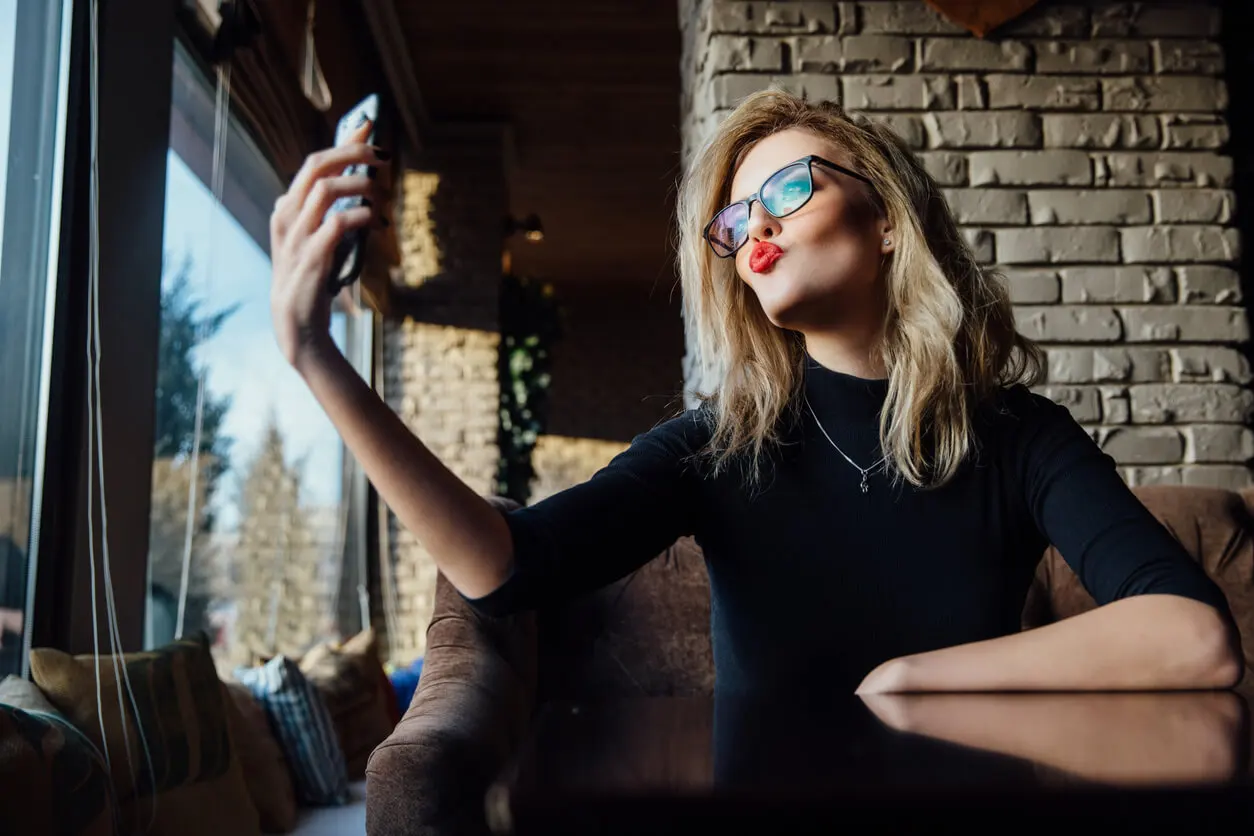Selfies and Psychological Disorders: How Are They Linked?


Written and verified by the psychologist Maria Fatima Seppi Vinuales
Increasingly, there’s talk of an association between selfies and psychological disorders, opening a new debate about the way we relate to technology. Is it true that this practice can affect us?
For some years now, most people have known what we are talking about when we refer to a selfie: the self-capture of a photo that’s generally intended for social networks. It may stay there, but there are some people whose very lives revolve around this practice.
How are “selfies” and psychological disorders related?
There’s still no consensus as to what category to assign to the obsession with taking selfies. There are those who already speak of selfies as a term to highlight the association between selfies and psychological disorders.
Depending on its severity (which can be determined by the amount of time the person spends taking pictures), it could be classified as follows:
- Limited disorder: Taking three photos a day, but without uploading them to social networks.
- Acute disorder: Taking several photos a day and posting them to social networks.
- Chronic disorder: Taking photos more than six times a day and updating them to social networks.
On the other hand, there are experts who prefer to speak of a body dysmorphic disorder. This is especially true for those cases in which filters from apps are applied and body retouching is done prior to posting.
Finally, selfitis is included within the 2.0 disorders in the psychological diagnostic manual. That is, it’s a part of the disorders that appeared hand in hand with new technology.
Why might a selfie addiction exist?
Some of the common hypotheses that are shared around the state of the art of selfies and their relationship with psychological disorders are the following:
- Taking one or several selfies is not a harmful act in itself. The problem arises when it becomes an obstacle to performing another activity and becomes the main interest of our day. That is, if you’re having dinner with your friends, but it’s more important to capture the image than to share the moment with them, then there’s a major downside.
- Many people who are stubborn about selfies have a history of low self-esteem, need, and dependence on external validation, as well as approval seeking.

The consequences of taking selfies 24/7
No one doubts the smile you get when your cell phone takes a carousel of photos of what happened a year ago and reminds you of moments shared with family or friends. However, the dangerous point of living a life for the networks or taking selfies of everything that happens is that when you blur the boundaries, there are consequences at the individual and interpersonal levels.
Of course, we’re not just talking about the link between selfies and psychological disorders, but also more tangible and concrete consequences in real life. Let’s take a look at some of them.
We think you may also enjoy reading this article: What is Breadcrumbing, and How Can You Avoid Doing It?
Consequences on a personal level
- If photos are published, there’s an overexposure of the person. This can infringe on their privacy. In the worst case, there are those who take advantage of public life to harass others. For example, they may do this through cyberbullying. There’s also talk of the way in which the body becomes an object of consumption in these cases.
- There are some people who live in a state of preoccupation with other people’s reactions and comments on their photos. They have a dependence on the opinion of others and such insecurity that they’re trapped in the search for constant reinforcement and approval. This generates even more insecurity, anxiety, and stress.
- Selfie addictions are also referred to as possible behavioral addictions.
- Although these are more isolated cases, it should not be overlooked that, on some occasions, taking a selfie means endangering one’s life. In this sense, there are news reports of falls and blows down cliffs, mountains or other places because of these carelessness. In the eagerness to have the best photo, many people expose themselves to unnecessary risks.
Like this article? You may also like to read: The Characteristics of a Close-minded Person and How to Deal with Them
Consequences on an interpersonal level
- We miss out on enjoying and connecting with other people because we’re too preoccupied with the pose, the selfie, and the details of the photo.
- When selfies involve taking pictures with others and then sharing them, we sometimes give rise to disputes about omitting the right to privacy.

Selfies in the context of the primacy of aesthetics and image
We can’t ignore that this is a phenomenon of the times that’s facilitated by new technologies. However, we should not demonize these technologies, but instead learn to make good use of them.
The order of the day tends to be tending to our image and what “looks nice.” However, the risk we run is to ignore or demonize everything that doesn’t fit into this canon. We may not be aware of the messages we’re sending by posting, liking, or commenting on selfies, but we do reinforce this practice.
Many times, real life itself bothers us because not everything is seen with the color and filter of the networks. In this way, we proceed to build an image that is too retouched and fictitious and that doesn’t correspond to what happens when the camera is turned off.
Behind all these pretensions of perfection or aesthetics, we could be sowing fertile ground for those who already have eating disorders, for those who feel depressed, or for those who can’t find meaning in their lives.
Life is as it is: in all its colors, with its blacks and whites. Don’t let social networks not deceive you.
All cited sources were thoroughly reviewed by our team to ensure their quality, reliability, currency, and validity. The bibliography of this article was considered reliable and of academic or scientific accuracy.
- Mills JS, Musto S, Williams L, Tiggemann M. “Selfie” harm: Effects on mood and body image in young women. Body Image. 2018 Dec;27:86-92. doi: 10.1016/j.bodyim.2018.08.007. Epub 2018 Aug 24. PMID: 30149282.
- Lonergan AR, Bussey K, Mond J, Brown O, Griffiths S, Murray SB, Mitchison D. Me, my selfie, and I: The relationship between editing and posting selfies and body dissatisfaction in men and women. Body Image. 2019 Mar;28:39-43. doi: 10.1016/j.bodyim.2018.12.001. Epub 2018 Dec 17. PMID: 30572289.
- Fox J, Vendemia MA, Smith MA, Brehm NR. Effects of taking selfies on women’s self-objectification, mood, self-esteem, and social aggression toward female peers. Body Image. 2021 Mar;36:193-200. doi: 10.1016/j.bodyim.2020.11.011. Epub 2020 Dec 23. PMID: 33360476.
- Starcevic, V., Billieux, J., & Schimmenti, A. (2018). Selfitis, selfie addiction, Twitteritis: Irresistible appeal of medical terminology for problematic behaviours in the digital age. Australian & New Zealand Journal of Psychiatry, 52(5), 408-409.
- Balakrishnan, J., & Griffiths, M. D. (2018). An exploratory study of “selfitis” and the development of the Selfitis Behavior Scale. International journal of mental health and addiction, 16(3), 722-736.
This text is provided for informational purposes only and does not replace consultation with a professional. If in doubt, consult your specialist.








